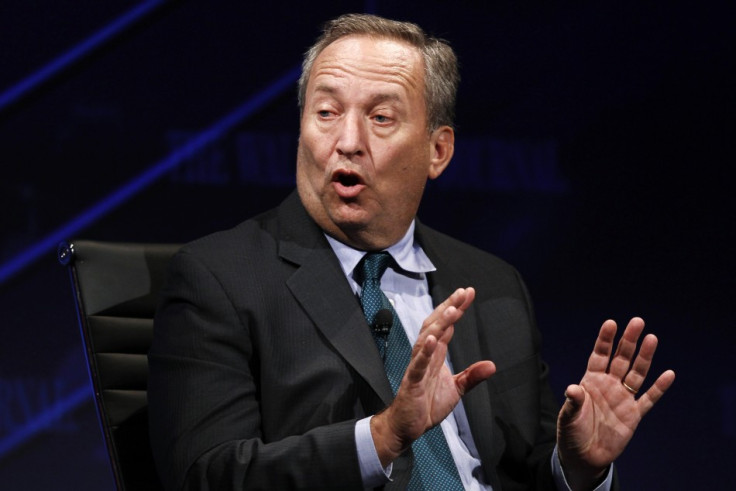Larry Summers Quits US Fed Chairman Race

Larry Summers, one of the most colourful yet divisive American economists of the past 20 years, has decided not to run to head the mighty US Federal Reserve.
Summers wrote a letter to President Barack Obama in which he withdrew his candidacy to replace incumbent chairman Ben Bernanke, who is due to step down in 2014.
Until Summers' resignation, he and Janet Yellen, vice chairwoman of the Fed and Bernanke's deputy, had been the frontrunners in a race which has generated unusually heated debate among Washington insiders over the past few months.
Most of the acrimony surrounding the debate has been due to Summers' larger than life reputation as brilliant but abrasive figure who has made many enemies in his storied career.
Political Opposition
Some members of the Senate banking committee, which needs to confirm a candidate before they go before the full senate, were firmly against Summers.
Democratic senators Sherrod Brown from Ohio and Elizabeth Warren from Massachusetts have been pro-Yellen partisans.
Both have focused on the themes of a reckless banking sector that does not serve ordinary Americans and the need to toughen lax regulation.
To them, Summers represented what is wrong with a political system corrupted by big money from corporations.
Meanwhile on the Republican side, some have criticised Summers for being an advisor to Obama from 2009-2010, where he headed the National Economic Council.
His advice was that major banks had to be saved by the federal government and he advocated the first-term stimulus that is hated by those obsessed with the level of US debt.
Larger Than Life
Although Summers had a glittering record in academia as a precocious young economist with an ability to grapple with complex problems, his transition into a policymaker became far more questionable.
Summers was treasury secretary to former president Bill Clinton from 1999-2001 and was partially responsible for the deregulation of financial markets that some blame for the financial crash in 2008.
The fact he also acted as an advisor to various Wall Street firms when out of office only added to the perception of his critics on the American left that he was always more interested in making money rather than austere public service.
Many of his fiercest critics came from within the Democratic Party highlighting the tension in the party between those who are more pro-market and those who are less so.
© Copyright IBTimes 2025. All rights reserved.






















